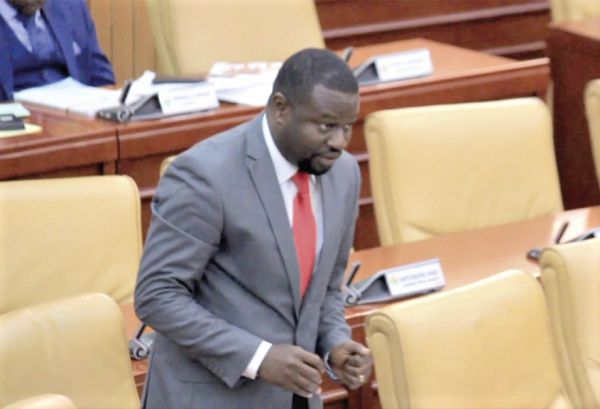Frank Annoh Dompreh, the Minority Chief Whip and Member of Parliament for Nsawam Adoagyiri, has issued a stark warning about the trajectory of the Mahama administration, predicting a wave of scandals that will engulf the government by next year. He emphasizes that this prediction isn’t a curse or a partisan attack, but rather a reasoned observation based on the emerging patterns within the first three months of the NDC government’s return to power. Dompreh highlights what he perceives as early indicators of potential corruption and mismanagement, suggesting that the administration is already exhibiting signs of weakness and a lack of control that could lead to significant scandals in the near future. He contends that while most governments typically take one or two years before serious issues surface, the NDC, in his view, is demonstrating a concerningly rapid decline in ethical conduct and administrative effectiveness.
Dompreh’s assertion centers on the idea that the seeds of future scandals are being sown in the current actions and policies of the Mahama administration. He believes that the government’s early performance reveals a predisposition towards practices that could easily escalate into major controversies. This preemptive warning serves not only as a critique of the current government but also as a call for increased scrutiny and accountability. He believes that by raising these concerns early, he can potentially prevent the predicted scandals from materializing or, at the very least, mitigate their impact. Dompreh’s stance suggests a deep concern about the potential long-term consequences of the perceived missteps of the current government, particularly regarding public trust and the effective governance of the nation.
Adding weight to Dompreh’s concerns is his criticism of the Minister of Government Communications and Presidential Spokesperson, Felix Kwakye Ofosu. Dompreh points to Kwakye Ofosu’s dismissive and arguably unprofessional response to allegations raised by Assin South MP, Rev. John Ntim Fordjour, regarding suspicious flights potentially carrying illicit goods into the country. Kwakye Ofosu’s labeling of Rev. Ntim Fordjour as a “clown” is cited by Dompreh as an example of the government’s dismissive attitude towards legitimate concerns and its tendency to resort to personal attacks rather than address the substance of the allegations. This incident, according to Dompreh, underscores a broader pattern of disregard for accountability and transparency within the Mahama administration, further fueling his concerns about potential future scandals.
The core of Dompreh’s argument lies in the perceived rapid deterioration of governance under the Mahama administration. His claim that the government’s shortcomings are becoming evident within just a few months of assuming office is a serious indictment of its performance. While acknowledging that challenges typically emerge over a longer period, he argues that the NDC’s early missteps are particularly concerning, suggesting a deeper systemic issue within the administration. He emphasizes the importance of holding the government accountable from the outset, arguing that early intervention is crucial to prevent the perceived trajectory towards widespread corruption and mismanagement.
Dompreh’s prediction of future scandals is rooted in his interpretation of the government’s current actions and its communication strategies. He sees the dismissive response to the allegations regarding suspicious flights as symptomatic of a larger problem within the administration. This incident, coupled with other perceived missteps, has led him to believe that the government is creating an environment conducive to corruption and scandal. He argues that the lack of transparency and the dismissive attitude towards legitimate concerns create a breeding ground for unethical practices to flourish, potentially leading to the major scandals he predicts.
The significance of Dompreh’s warning extends beyond mere political rhetoric. It represents a serious challenge to the integrity and competence of the Mahama administration. His predictions, if they materialize, could have significant implications for the government’s credibility and its ability to effectively govern. The accusations of potential corruption and mismanagement, coupled with the criticism of the government’s communication strategies, raise fundamental questions about the direction of the country under the current leadership. Dompreh’s outspoken stance underscores the critical role of opposition parties in holding the government accountable and ensuring transparency in its actions.


